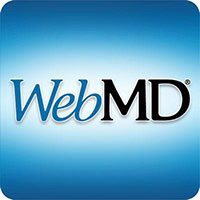Could Heartburn Meds Lead to Drug-Resistant Germs?
TUESDAY, Feb. 25, 2020 (HealthDay News) — Common heartburn meds may foster the growth of antibiotic-resistant bacteria in the gut, a new research review suggests.
In an analysis of 12 past studies, researchers found that, overall, the evidence supports a link: People who use acid-suppressing medications — particularly proton pump inhibitors (PPIs) — are more likely than nonusers to harbor antibiotic-resistant bacteria in the gut.
The findings do not prove that PPIs — which include popular brands such as Prilosec (omeprazole), Prevacid (lansoprazole) and Nexium (esomeprazole) — are the cause, experts said.
But they are the latest to raise safety questions about the top-selling prescription and over-the-counter medicines.
In recent years, studies have linked long-term PPI use to increased risks of heart and kidney disease, stomach cancer and certain infections — as well as deficiencies in calcium, magnesium and vitamin B12.
That said, PPIs are generally safe to use, according to Dr. Todd Lee, an associate professor of medicine at McGill University in Montreal.
But, he said, it’s known that doctors overprescribe the drugs and that many people take them longer than necessary. So any safety concerns underscore the importance of using PPIs only when appropriate.
“This is more evidence for why we want to use PPIs judiciously,” said Lee, who wrote an editorial accompanying the study, which was published online Feb. 24 in JAMA Internal Medicine.
Dr. Roel Willems, lead author on the analysis, agreed.
“PPIs should only be used when absolutely necessary,” said Willems, of Amsterdam University Medical Center in the Netherlands. “Unfortunately, inappropriate use is common, and PPIs are freely available at drugstores without any medical [supervision].”
PPIs work by blocking the enzyme system that creates stomach acid. They are commonly prescribed for gastroesophageal reflux disease (GERD), in which stomach acid chronically escapes into the esophagus (the tube connecting the mouth and stomach).
But doctors sometimes prescribe them for vague abdominal complaints, according to Lee.
“I think they want to help patients and will say, ‘Take this PPI and see if it goes away,'” Lee said. “The problem is, the symptoms do get better — but they might have gone away on their own anyway.”




